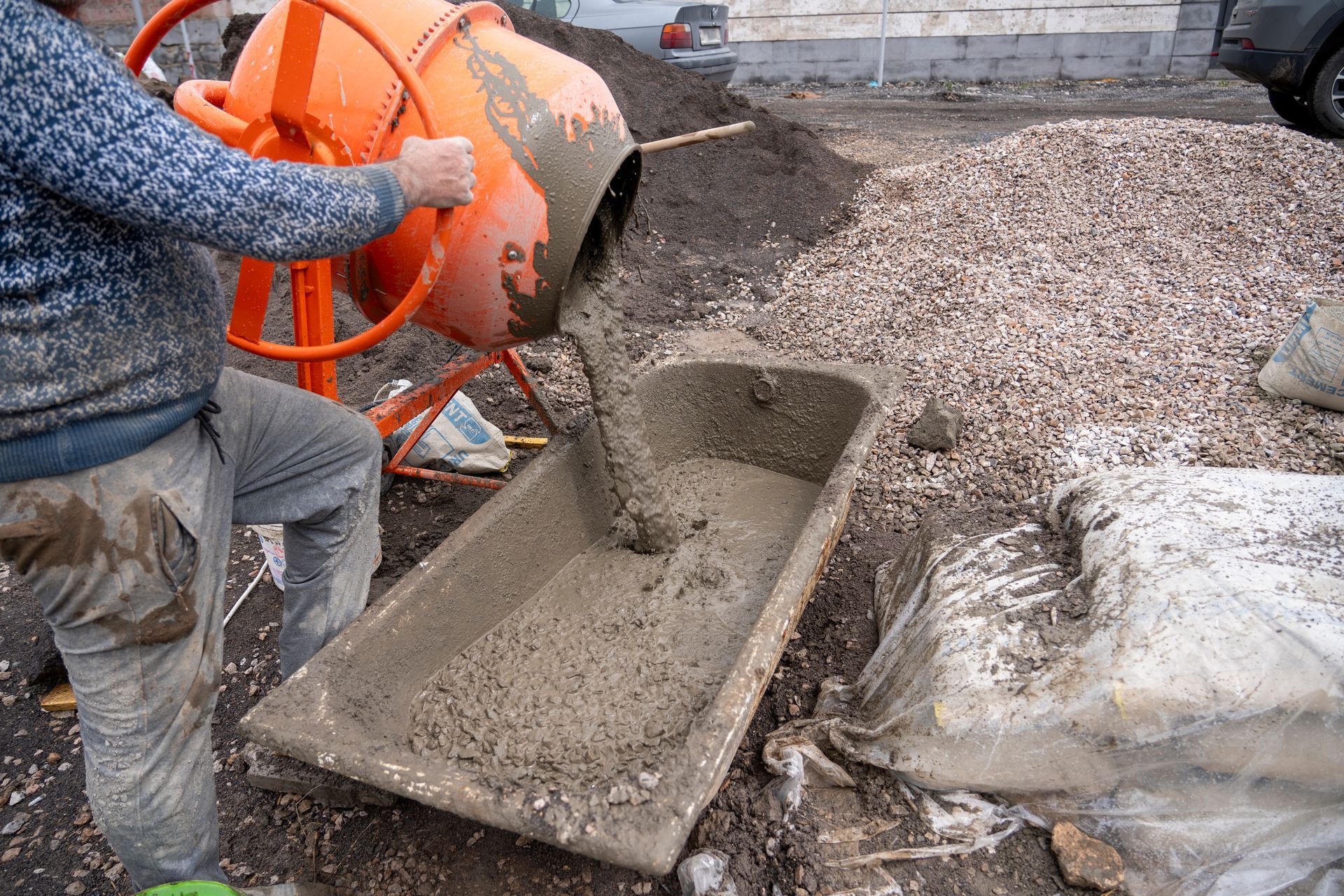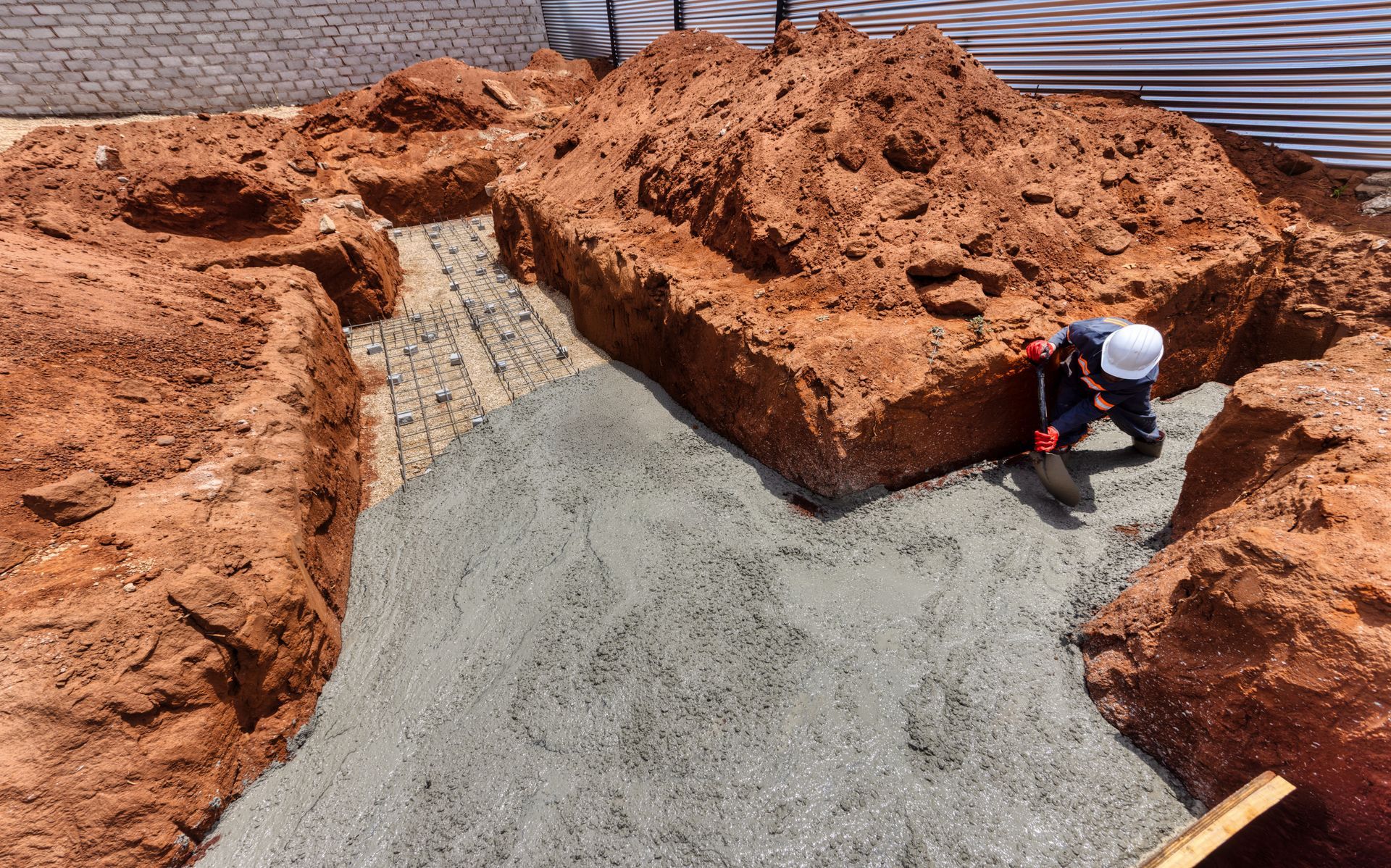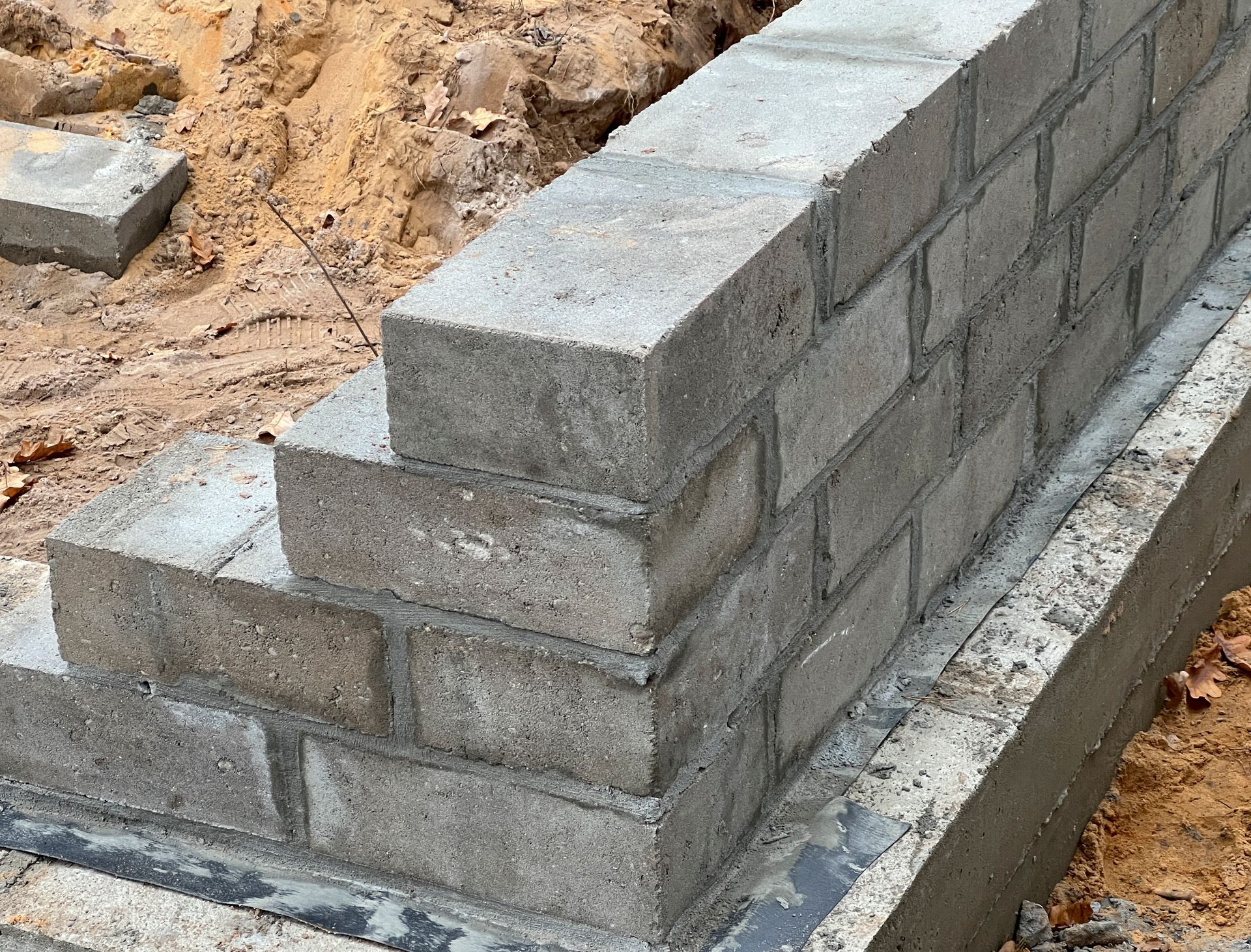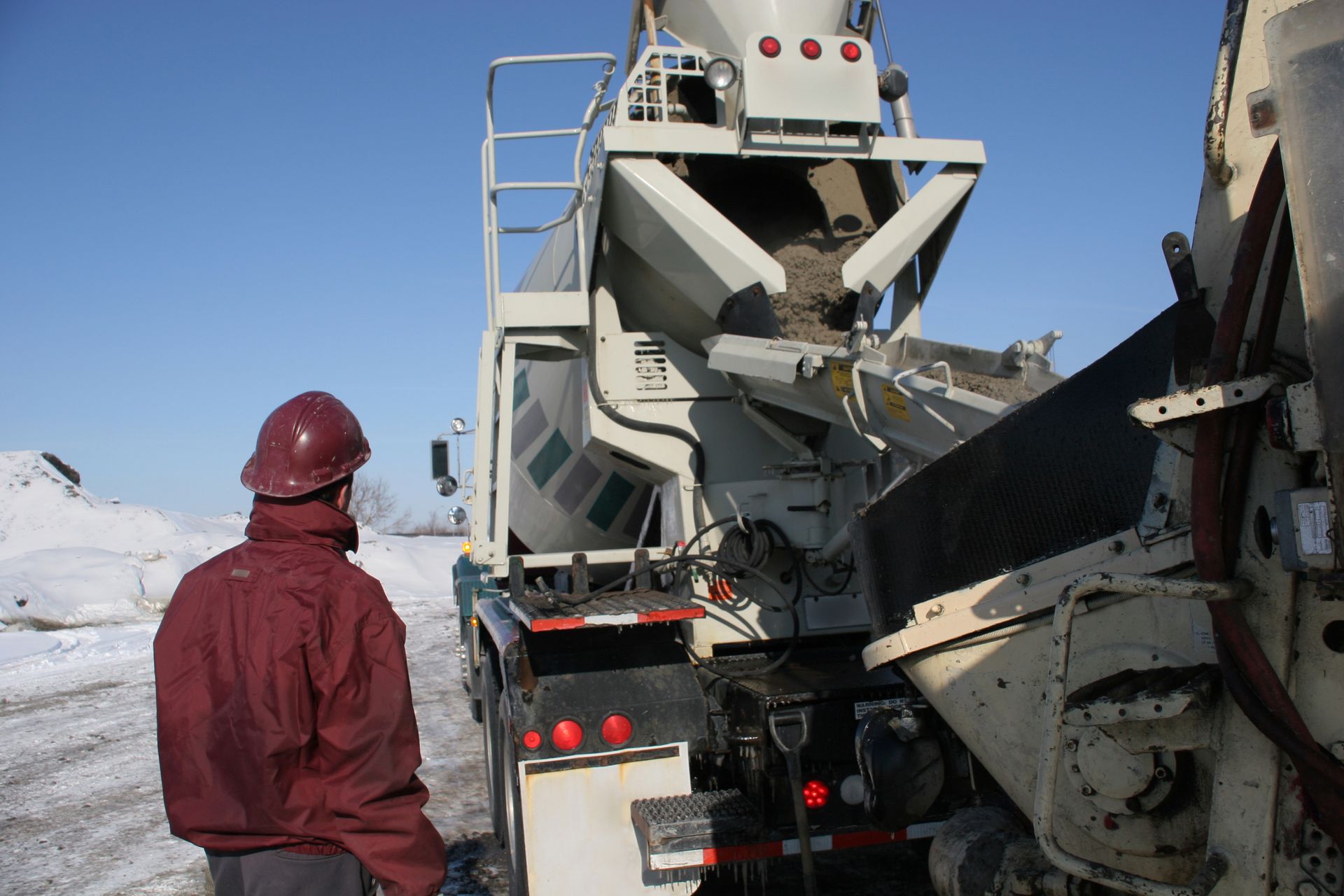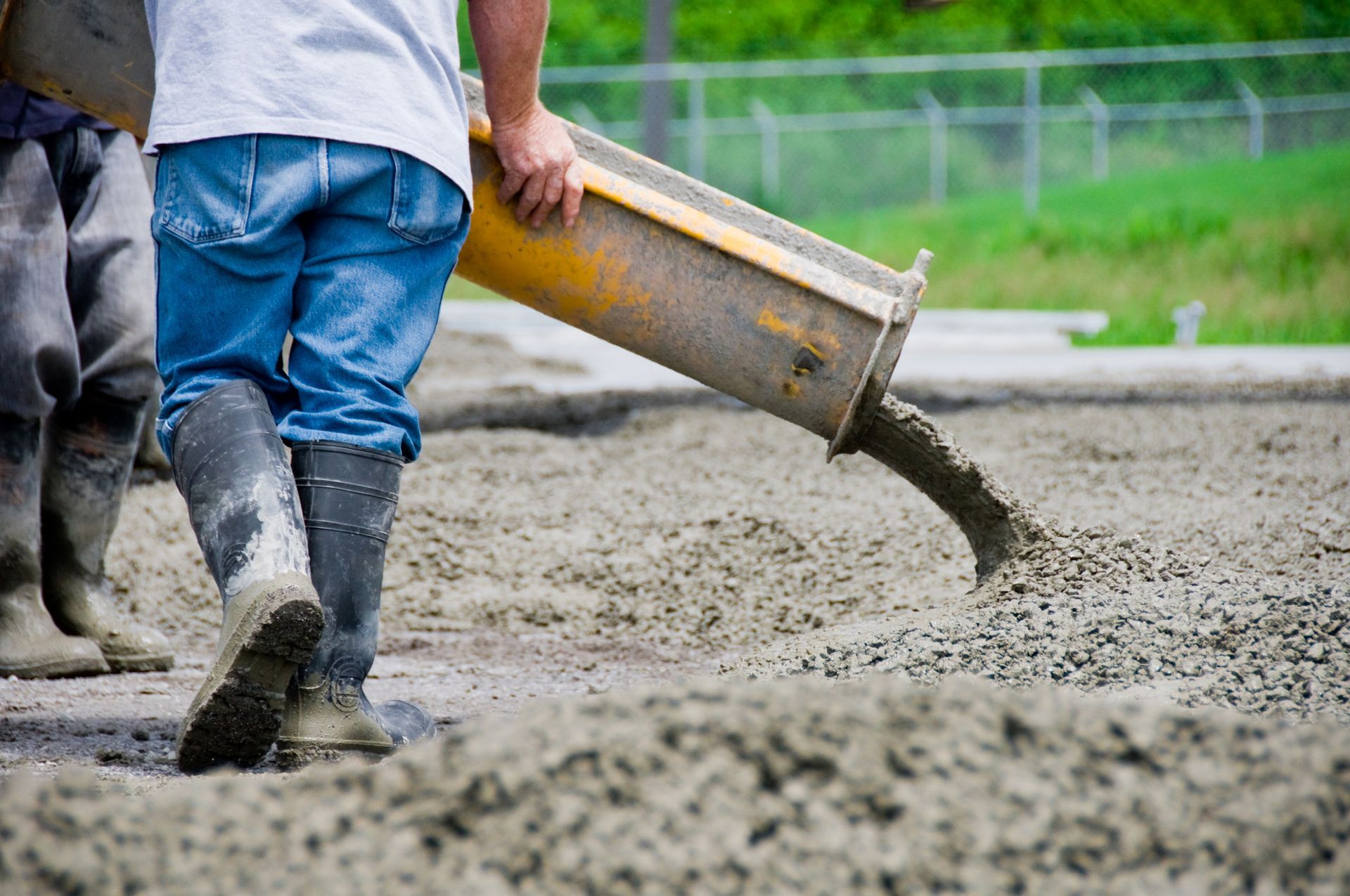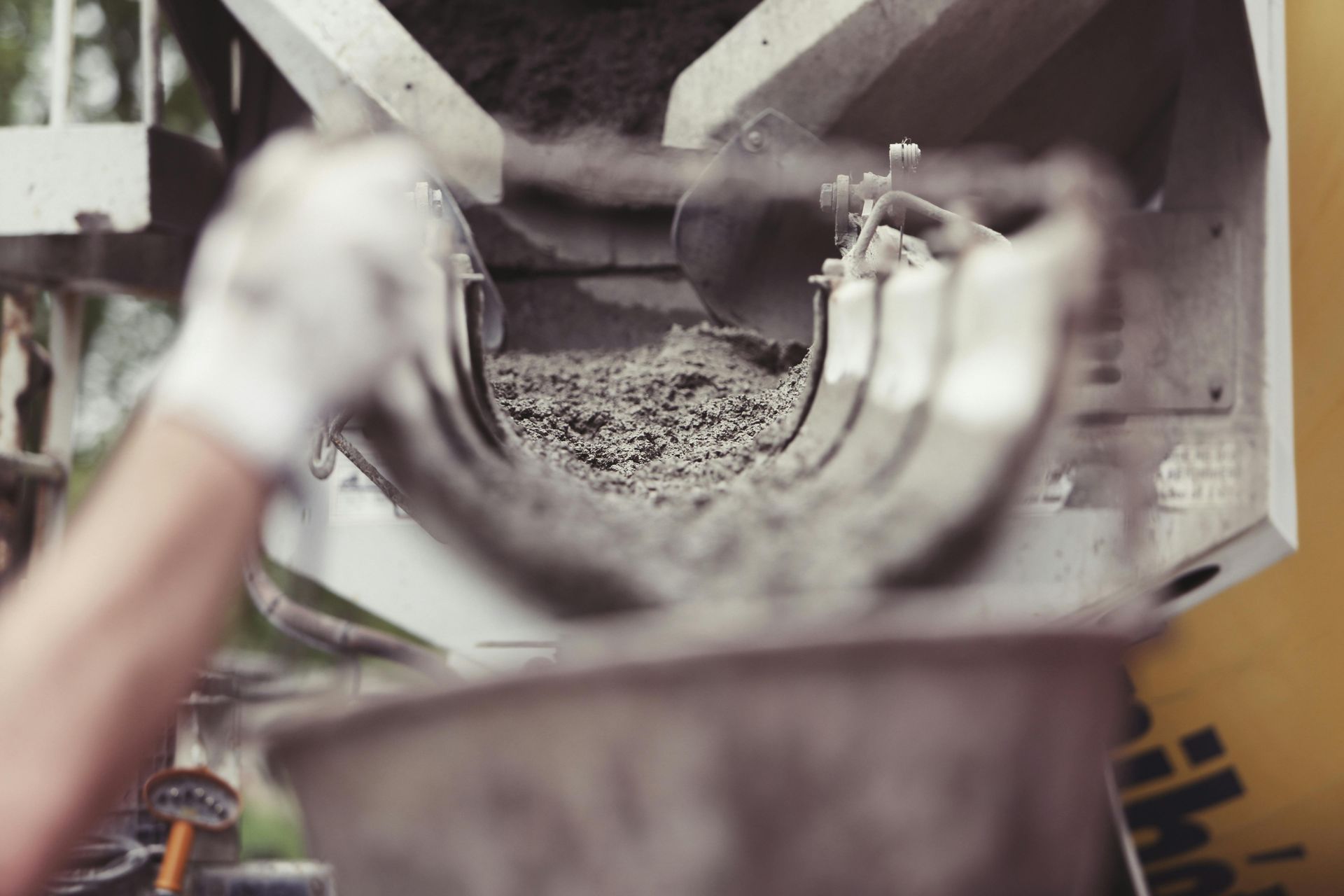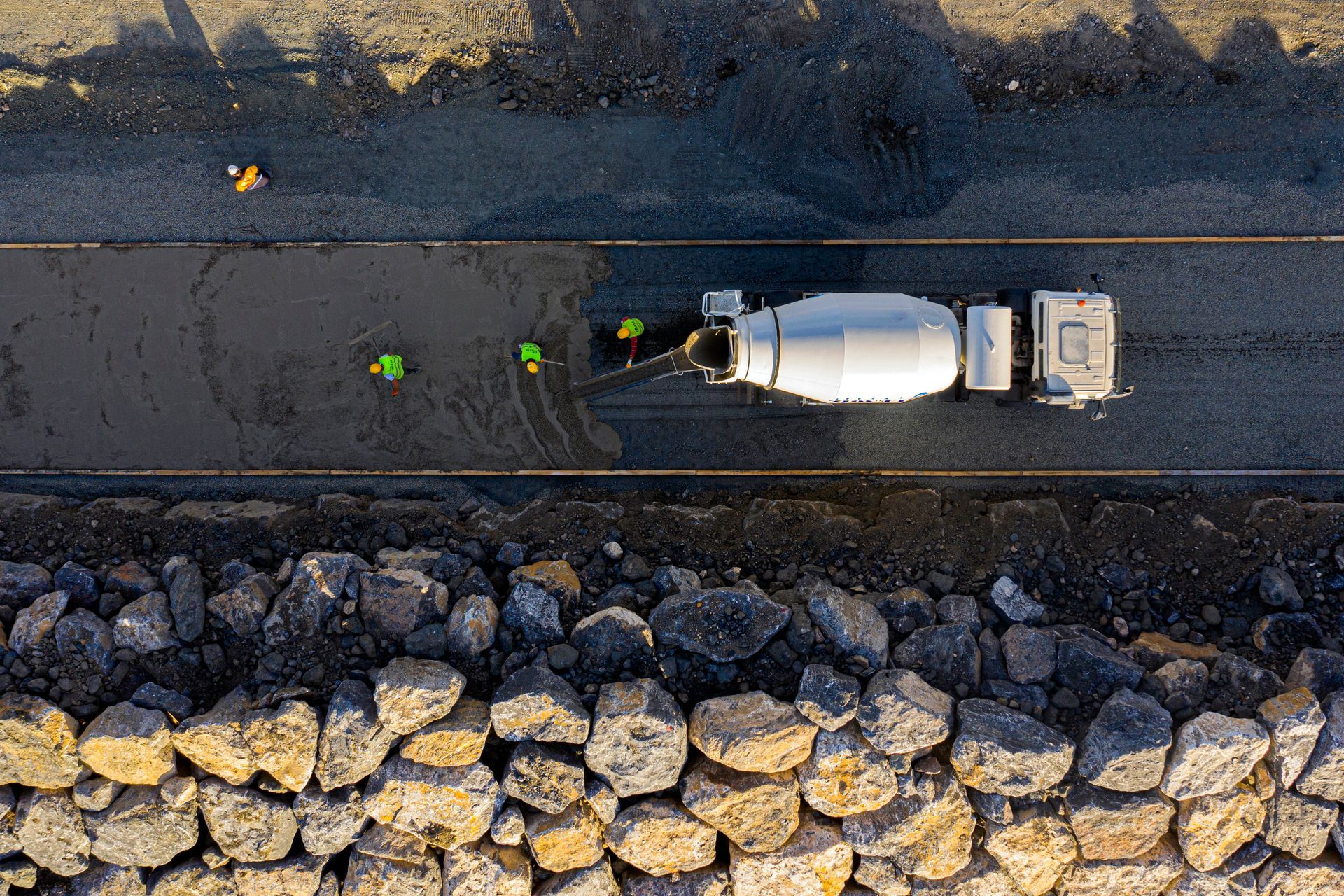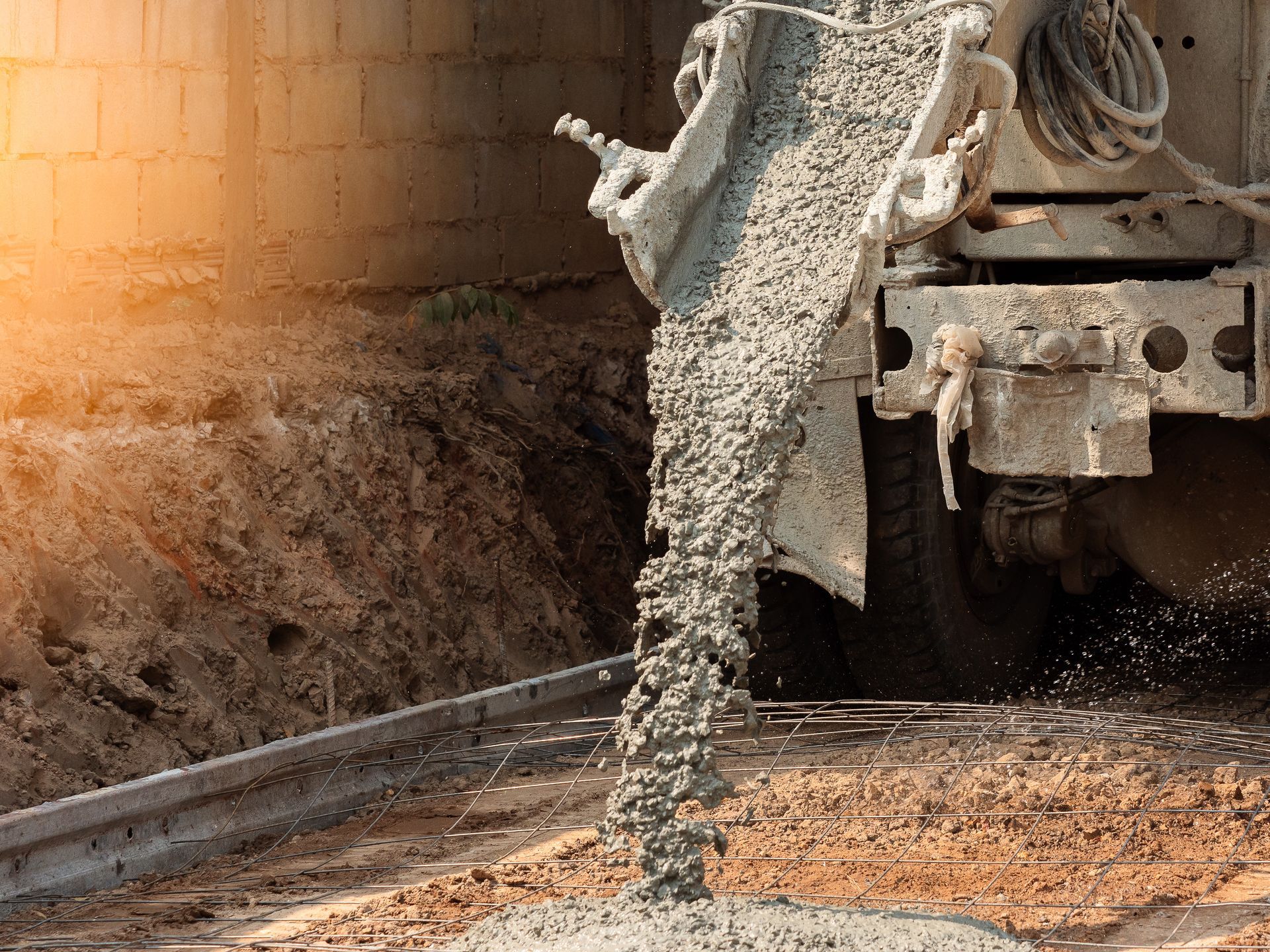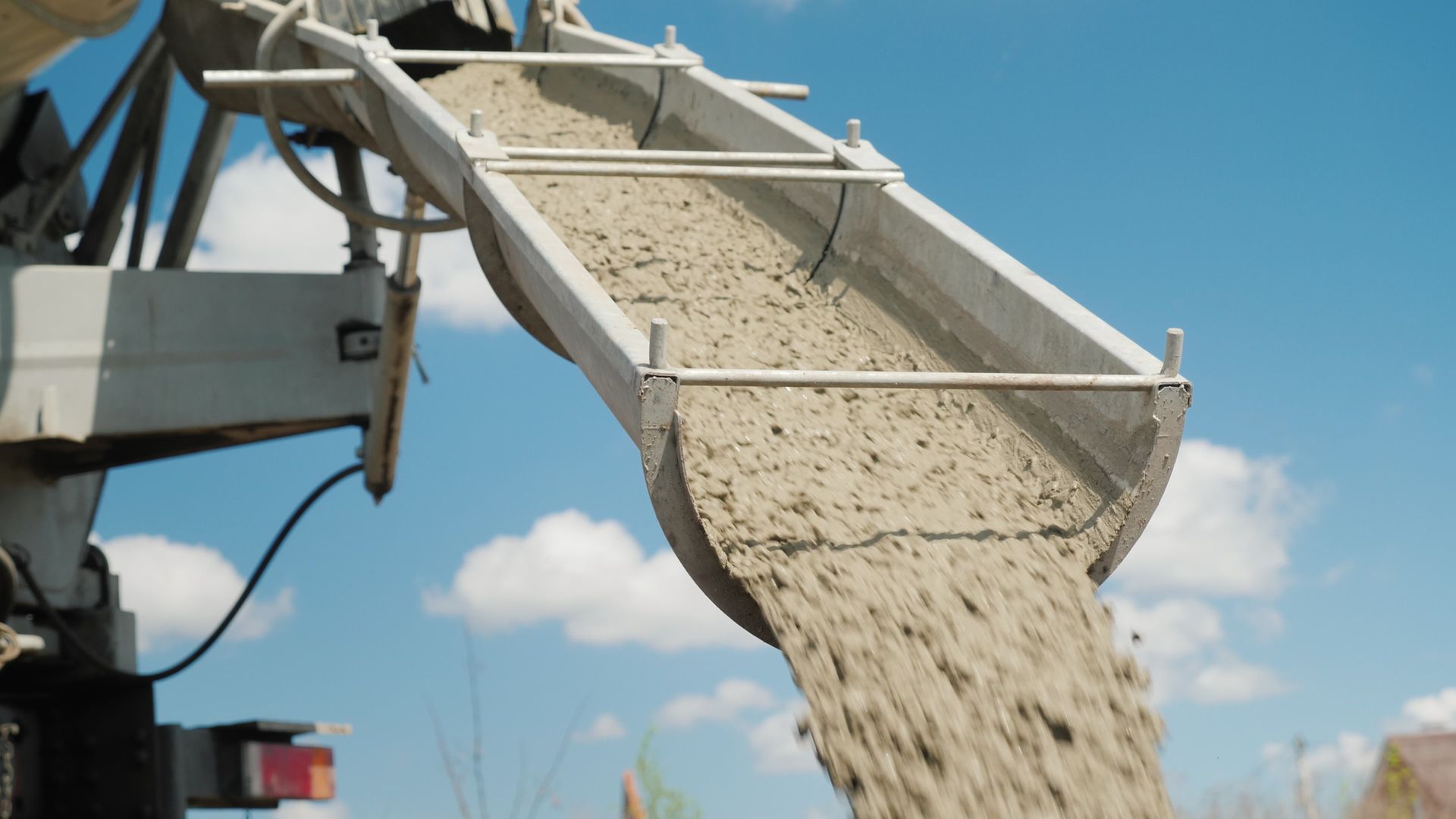Maintenance and Care for Concrete Surfaces: Sealing, Cleaning, and Repair Tips
Concrete is one of the most durable building materials you can choose for driveways, sidewalks, patios, and commercial spaces. But just because it’s tough doesn’t mean it’s maintenance-free. Proper care not only extends the life of your concrete but also keeps it looking its best year after year. Here are some expert tips on sealing, cleaning, and repairing concrete surfaces.
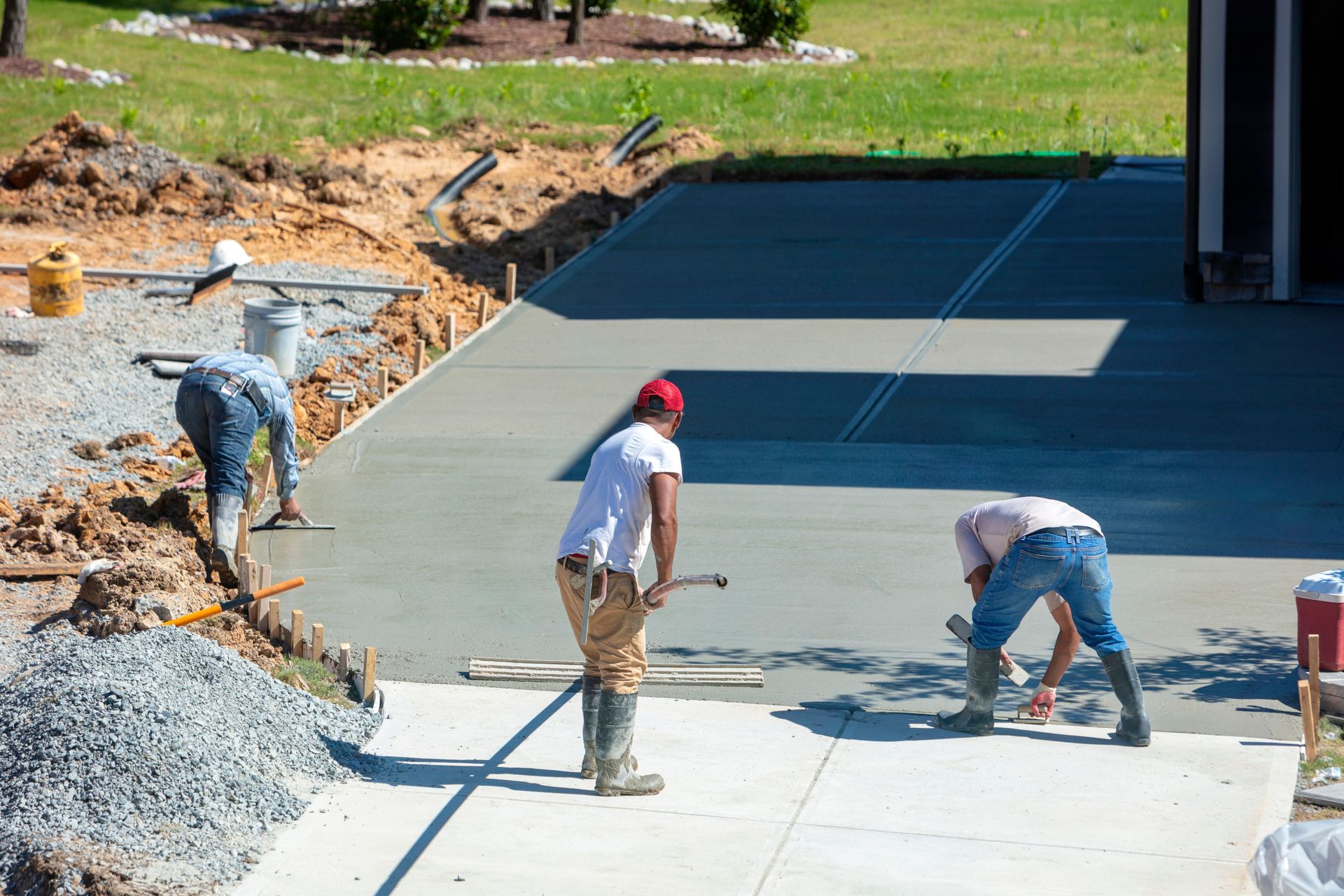
Why Maintenance Matters
Concrete is designed to withstand heavy loads, weather, and everyday use. However, over time it can be affected by:
- Moisture and freeze-thaw cycles
- De-icing salts and chemicals
- Oil and grease stains
- UV exposure and general wear
With the right maintenance routine, you can prevent cracking, discoloration, and costly repairs down the road.
Sealing Concrete Surfaces
What Sealing Does
A sealer acts as a protective barrier against water, chemicals, and stains. It also enhances the appearance of decorative or colored concrete.
How Often to Seal
- Driveways & sidewalks: Every 2-3 years
- High-traffic commercial areas: Every 1-2 years
- Decorative concrete: More frequently depending on exposure
Types of Sealers
- Penetrating sealers: Absorb into the concrete to protect against moisture and freeze-thaw damage.
- Film-forming sealers: Create a glossy or matte finish that enhances color and provides stain resistance.
Pro Tip: Always start with a clean, dry surface before sealing, and follow the manufacturer’s recommended coverage rate.
Cleaning Concrete Surfaces
Routine Cleaning
- Sweep or blow off debris regularly to prevent dirt buildup.
- Rinse with a garden hose or pressure washer on a low setting.
Stain Removal
- Oil or grease: Use a degreaser or dish soap with warm water and scrub with a stiff brush.
- Rust stains: Try a concrete rust remover specifically designed for masonry.
- Mold or mildew: Mix a mild bleach solution (1 part bleach to 10 parts water) and scrub affected areas.
Avoid: Harsh acids or abrasive cleaners that can damage the surface or sealer.
Repairing Concrete
Even with regular maintenance, concrete can develop cracks or chips over time. The key is addressing issues early.
Small Cracks
Use a concrete crack filler or patching compound. Clean the crack thoroughly before applying.
Larger Damage
For spalling, scaling, or bigger cracks, resurfacing may be necessary. This involves applying a thin overlay of new concrete to restore the surface.
When to Call a Professional
If structural damage, deep cracks, or significant surface wear are present, professional assessment and repair are recommended. This ensures long-term durability and safety.
Seasonal Care in Tennessee
In Middle Tennessee, the combination of hot summers and cold winters makes maintenance even more important.
- Spring: Rinse away salt and grime from winter.
- Summer: Inspect for cracks and reseal if needed.
- Fall: Remove leaves and organic debris quickly to avoid stains.
- Winter: Avoid harsh de-icing chemicals; use sand or non-corrosive alternatives instead.
Final Thoughts
With proper sealing, regular cleaning, and timely repairs, your concrete surfaces can last for decades while maintaining their strength and appearance. Whether it’s a residential driveway, decorative patio, or commercial slab, a little maintenance goes a long way.
At Orgain Ready Mix, we not only supply high-quality ready-mix concrete across Middle Tennessee but also share the knowledge you need to get the most out of your investment.
Need help with your next project? Contact Orgain Ready Mix to discuss the right mix, additives, and solutions for long-lasting concrete.
